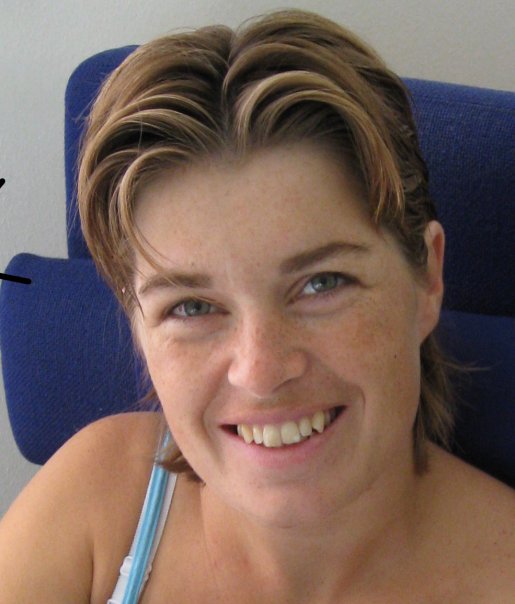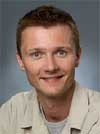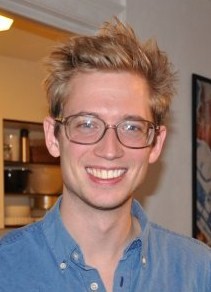Team:SDU-Denmark/team2
From 2010.igem.org
Contents |
Advisors
This site is dedicated to our advisors, who have helped us a lot during the entire project.
Ann Zahle Andersen
I am a post.doc at the microbiology group of the department of biochemistry and molecular biology at SDU. I have a past I systems biology and mathematical modeling, but am currently researching in the field of food microbiology.
I was introduced to the iGEM team in May and immediately saw great potential. Therefore I am truly honored to be an instructor on their project and look forward to lots of fun and good science over the summer.
Martin Hanczyc
Synthetic Biology presents an interesting challenge to apply reliable protocols from molecular biology to alter and control the functionality of complex living systems. The results of such endeavors are far from predictable and give scientists a realistic perspective on the interconnectivity, programmability, and complexity of living systems. This is an exciting time for students interested in living systems to try to reprogram them in specific and quantifiable ways.
As an associate professor at SDU, I am primarily interested in developing laboratory models of complex systems that have life like properties. This is done through my participation in the research center called FLinT (fundamental living technology). Currently my research lies in physics and chemistry, but my interests are based in biology and evolution.
The team of students here came together under common interest, self organized and effectively initiated training in Synthetic Biology at SDU. It is a pleasure for me to support their initiative, energy and curiosity.
Jakob Møller-Jensen
Associate Professor, Department of Biochemistry and Molecular Biology, University of Southern Denmark.
I am interested in the molecular mechanisms by which pathogenic strains of Escherichia coli cause disease. In my group, we aim to identify bacterial virulence factors and further characterize the molecular cross-talk taking place at the host-pathogen interface during infection. In this framework the C. elegans model organism is used extensively for both genetic and proteomic analyses of bacterial infection.
As a supporter throughout the summer I have become truly impressed by the SDU iGEM team enthusiasm and genuine interest in science. They really make things happen, both in the lab and outside!
Kir Jacobsen
Mike Barnkob
Janni Vester Bjerrum
 I am doing my master thesis with Jakob Møller-Jensen in the microbiology group of the department of biochemistry and molecular biology at SDU in Odense.
I am doing my master thesis with Jakob Møller-Jensen in the microbiology group of the department of biochemistry and molecular biology at SDU in Odense.
My research is focussed on discovering sRNA’s from the pathogenic adherent-invasive E. coli involved in Crohn’s disease in order to identify the ones that are involved in the bacterial virulence. I work with the nematode C. elegans as a modelorganism for the human gastrointestinal tract.
I was introduced to iGEM as the 2009 SDU team was my lab neighbour which is bitched and moaned about because they were jabbering, taking up all the lab space and “borrowing” my stuff without returning them. I guess I was asked to be part of the iGEM this year so that I could no longer bitch and moan but rather was responsible for the teams interplay with the other people in the lab. Joke aside I hope to bring knowledge and lab experience to the team and I am very excited about working with this very diverse group of people and look forward to all the science we are going to make and all fun we are going to have, although there is a serious lack of cake so far.
Rafel Wieczorek
Rachel Wiesz
About SDU
University of Southern Denmark has more than 20,000 students and more than 4,000 employees. The university offers teaching and research at 6 campuses situated on Funen, in the south of Jutland, west of Zealand and in the capital city – in Odense, Kolding, Esbjerg, Sønderborg, Slagelse and Copenhagen.
University of Southern Denmark has created an institution of higher research and education which provides first-class educational opportunities and is cooperation partner for both public and private businesses and organisations for providing qualified labour.
The students of our team are studying at two diffent faculties:
Faculty of Health Sciences
One of only three in Denmark, the Faculty of Health Sciences enjoys close cooperation with Odense University Hospital, industry and experts across the world. The Faculty’s expertise in public health offers students and researchers a first-class learning environment and the opportunity to play a key role in the treatment and prevention of disease.University of Southern Denmark has a strong image when it comes to health science research, education and communication. We take part in securing quality and development in the entire region of Southern Denmark. Consequently our research must reflect the future challenges of the hospital and health system. Our students are provided with qualifications and competencies in a way that makes it possible for them to meet these new challenges.
Faculty of Science
Learning is hands-on at the Faculty of Science, where modern laboratories and an emphasis on fieldwork give you the opportunity to put theory into practice. The Faculty’s wide-ranging expertise, which includes research areas such as biotechnology and nanotechnology, offers you the chance to explore your area of interest alongside leading international specialists. Science is alive – it moves and speeds up the world. Science is alive because it is developed by engaged researchers in vivid settings and surroundings. The researchers of Science conduct research in first life on earth, synthetic biology, medicinal products of the future and of course proteomics, where University of Southern Denmark is in the top-class of the world.
Include column content here.
 "
"


